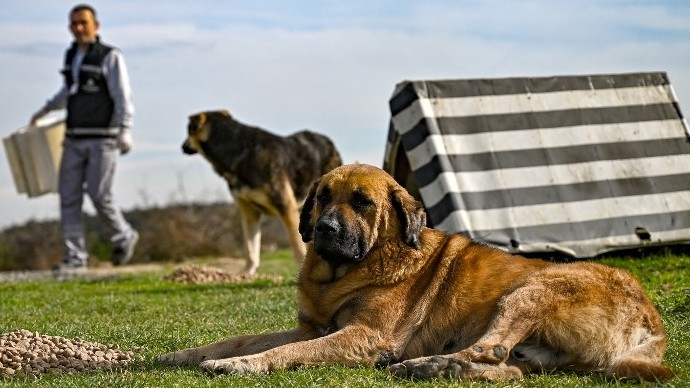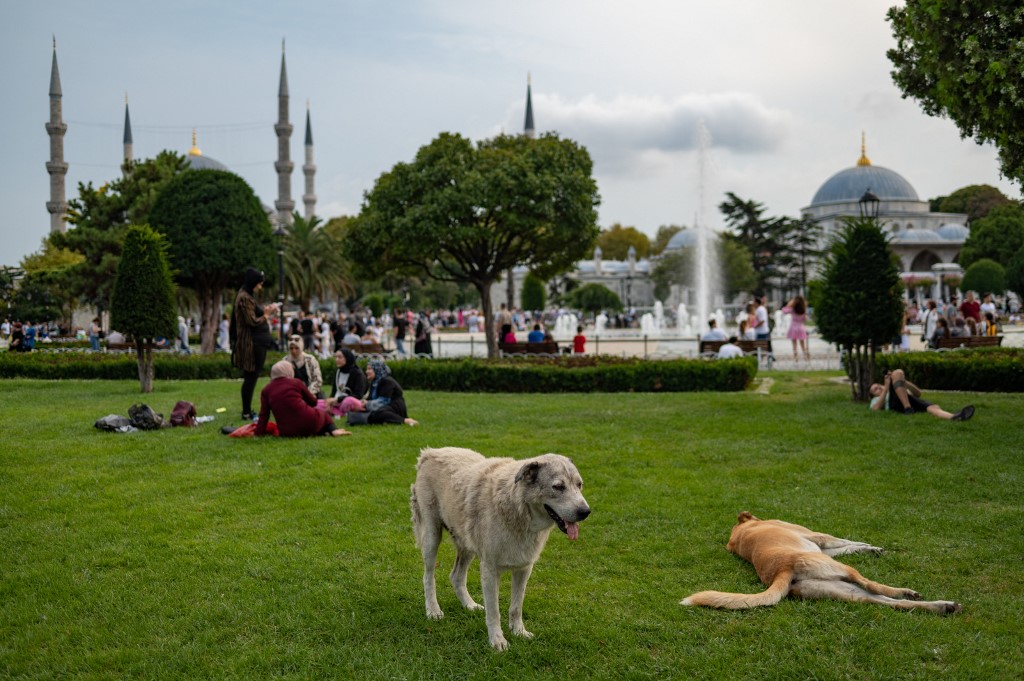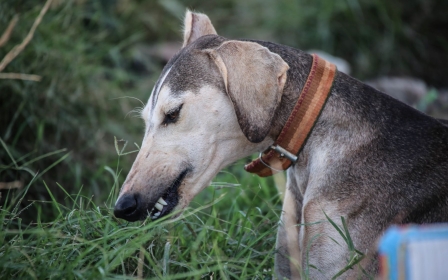Turkey: Dog abuse video sparks debate over what to do with millions of stray dogs

Online footage of two men abusing a dog at a shelter in Turkey last week has sparked widespread anger and reignited the debate about the government's approach toward animal shelters and the millions of stray dogs in the country.
The horrific clip, access to which is now banned by a court order, showed one employee at the facility in the central province of Konya hitting a dog with a shovel while another was strangling it in attempt to kill the animal. The two employees have since been arrested and are facing charges punishable by up to three years in jail.
The incident last Friday has polarised the country as many see the rising number of stray dogs as a menace while others criticised what they considered as insufficient government efforts to find a sustainable solution to the problem.
The country has also witnessed a reported surge in deaths caused by stray dogs. Since the beginning of 2022, stray dogs have killed an estimated 27 people and wounded 535.
New MEE newsletter: Jerusalem Dispatch
Sign up to get the latest insights and analysis on Israel-Palestine, alongside Turkey Unpacked and other MEE newsletters
Last month, the death of a 10-year-old child in Bitlis in Turkey’s southeast after being bitten by a rabid dog also caused uproar across the country.
A two-year-old toddler succumbed to severe injuries in July after a dog attack in Kars, a city in the country’s east, and his sister was severely injured.
In May last year, six-year-old Ruken Yildiz was attacked by 20 stray dogs in Van, in eastern Turkey, and died immediately.
'We are against the idea of shelter. A dog can’t live in a two square metre cage. Instead, they should be in open space'
- Murat Pinar, Safe Streets Association
In an indirect death, 10-year-old Mahra Melin Pinar was hit by a truck and died in Antalya in March as a stray dog was chasing her.
Her father, Murat Pinar, is currently the head of Safe Streets Association, an NGO that aims to raise awareness about the threats posed by stray dogs, especially to children and disabled people.
According to Pinar, the only applicable solution would be round up stray dogs and provide them with an appropriate living space, rather than shelters.
"The state has huge vacant lands in Anatolia. The dogs should be put there," he told Middle East Eye. "But we are against the idea of shelters. A dog can’t live in a two-square metre cage. Instead, they should be in open space."
Regarding the concerns of animal rights defenders, Pinar said these living spaces should be monitored by animal rights associations in order to prevent incidents like the one in Konya.
"There are still at least seven dogs in the street where my daughter died," he said, accusing the municipalities of failing to meet their obligations.
Fears of mass killings of dogs
Many public figures have spoken out against the shelter incident, including Turkey’s First Lady Emine Erdogan and pop singer Tarkan, calling for harsh punishments for the perpetrators.
Meanwhile, in response to popular outrage, the government said it would launch an investigation to see whether further violations of animal rights exist in Konya and other animal shelters across the country.
Turkish President Recep Tayyip Erdogan also said relevant authorities would take necessary measures to find a solution, without providing further details.
“We have taken necessary measures not to see similar incidents again,” he said on Saturday, referring to Konya.
While some people, including politicians and influential figures, call for collecting dogs and sending them to shelters, animal rights defenders are concerned this would lead to mass killings, an argument consolidated by the incident in Konya and the extermination policy advocated by a number of opponents of stray dogs.
For example, a widely-followed Twitter account campaigning for an end to the stray dogs phenomenon calls for either placing all stray dogs in temporary shelters or "putting the dogs to sleep painlessly."
But animal rights defenders refer to previous experiences when dogs were subjected to mass killing.
The most infamous campaign happened in 1910 when approximately 80,000 dogs were rounded up in Istanbul and left on Sivri Island, a small, deserted island in the Sea of Marmara, near Istanbul. Later, this island became known as "Hayirsiz" or "Wicked" island.
The dogs died of hunger and thirst, even attacking and dismembering each other. At that time, the groans of dogs were heard in Istanbul, triggering popular calls on the government to bring them back.
Is castration a solution?
According to official figures, it is estimated that the number of street animals is around 10 million in Turkey. However, the real number of dogs and cats is unknown.
A female dog usually gives birth to five puppets every six months. Ozlem Zengin, a member of parliament for the ruling Justice and Development Party claimed last year that "unless a mass castration is applied, the number of stray dogs will reach as many as 60 million in 10 years".
Turkey applies the policy of "capture, vaccinate and release," and local municipalities are required to castrate all captured stray dogs.
However, due to the failure in the implementation of this policy, the number of stray dogs continues to increase.
So are rabies cases: 87,508 people received treatment for suspected rabies infection in 2000 while this number increased to 283,185 in 2018, although the number of patients with confirmed rabies remained under five during this interval. The health ministry recently announced that 1.5 million doses of rabies vaccination would be procured.
The chairman of the Chamber of Veterinarians in Istanbul, Murat Arslan, believes stray dogs pose a threat to public health by spreading diseases. "Although local municipalities are authorised to castrate and vaccinate stray dogs, there is not sufficient budget to cope with the growing population," he said in an interview this month.
Animal rights activist Ahmet Kemal Senpolat argues that a mass castration campaign must be organised to decrease the number of stray dogs in the coming years. "The dogs must be collected, castrated, vaccinated and put in the street again," he said.
However, he believes there is no consistency among local municipalities in applying such policy. "While a municipality meticulously castrates dogs, its neighbouring municipality takes no step. As a result, we can’t see the decrease in the population.”
Yet, there are serious doubts about castration capacity. Turkey is home to 255 shelters only, which can look after less than 100,000 dogs. Moreover, castration of millions of dogs is believed to constitute a huge financial burden to the country.
Members of the Association of Protecting Animal Life (Haykader) also believe that the sale of dogs online and in pet shops must be prevented, while well-equipped shelters must be built where castration, vaccination and rehabilitation can be applied thoroughly.
Senpolat also says that the adoption culture is not common in Turkey as people seek to buy breed dogs.
Although law No 5199 bans the sale of dogs and cats in pet shops, a quick Google search shows hundreds of web pages that sell dogs.
Middle East Eye delivers independent and unrivalled coverage and analysis of the Middle East, North Africa and beyond. To learn more about republishing this content and the associated fees, please fill out this form. More about MEE can be found here.







